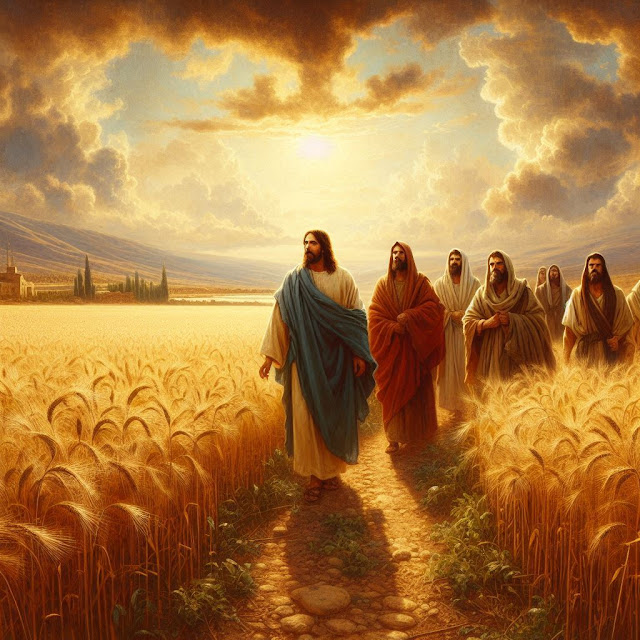Today we turn our attention to Exodus 31:1–18, a passage that shows us both the glory of God’s wisdom and His desire to dwell among His people in holiness.
When God called Moses up Mount Sinai, He did not simply give general directions for the building of the tabernacle. He gave Moses a blueprint—a heavenly pattern—so that every detail, every measurement, every material would reflect His perfect design. This was not man’s invention but God’s revelation. The tabernacle was to be a visible sign of God’s dwelling place among His people, a shadow of the heavenly sanctuary.
But God did not leave the work in human strength alone. In His grace, He chose and equipped two men for this sacred task: Bezalel and Aholiab. Bezalel was filled with the Spirit of God, with wisdom, understanding, knowledge, and all manner of craftsmanship. Aholiab was given skill to assist in the work. Together, and with other artisans, they were divinely gifted so that the tabernacle and all its furnishings would be made “in a beautiful and proper way.” Their ability was not their own—it was God’s Spirit working in them. This reminds us that whenever God calls us to a task, He also provides the gifts, talents, and strength necessary to carry it out.
In the same passage, God also gave a solemn reminder of the Sabbath. He told Israel that the Sabbath was a sign of His covenant with them. “Moreover also I gave them my Sabbaths, to be a sign between me and them, that they might know that I am the Lord that sanctify them” (Ezekiel 20:12). Just as the tabernacle pointed to God’s dwelling, the Sabbath pointed to God’s sanctifying power. Week after week, Israel was to remember that they belonged to Him, that He alone made them holy, and that their rest and salvation were found in Him.
Finally, at the close of Exodus 31, God gave Moses the two stone tablets of the testimony, written with the very finger of God. These were later placed inside the Ark of the Covenant, beneath the mercy seat. This is a powerful symbol: God’s holy law, the Decalogue, was inside the ark, but above it was the mercy seat, where the blood of atonement was sprinkled. This shows us that while God’s law is holy and unchanging, His mercy covers His people. It is only through His mercy that we can stand before a holy God.
So what do we see in Exodus 31? God provides the blueprint for His dwelling, He equips His people with the Spirit for the work, He gives the Sabbath as a sign of His sanctifying power, and He sets His law beneath His mercy. In all of this, the message is clear: God desires to dwell with His people, not only in holiness but in grace. And for us, this finds its perfect fulfillment in Jesus Christ, who is both the Lawgiver and the Mercy Seat, both the Dwelling of God and our Eternal Rest. Amen.














